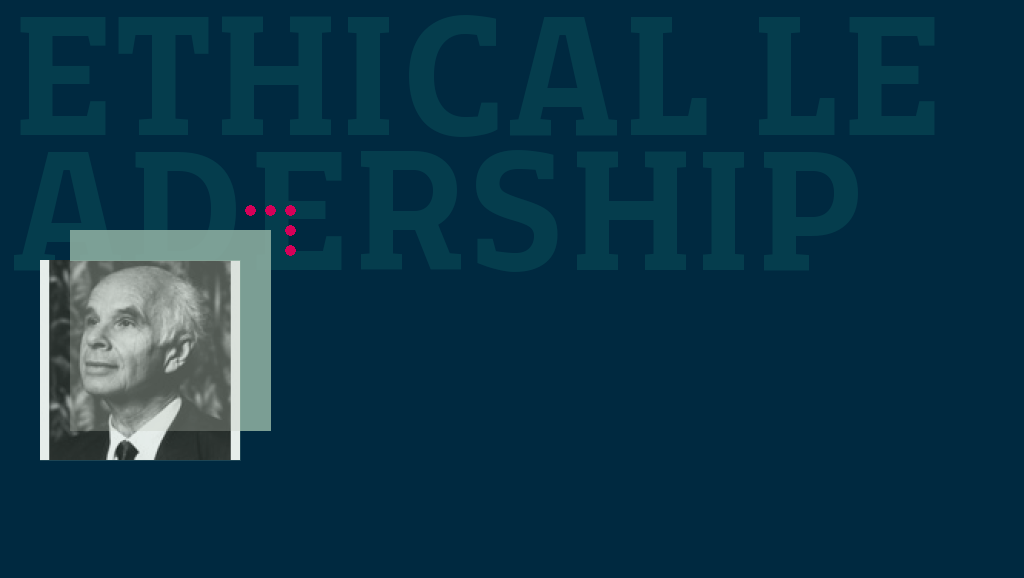(Ervin Laszlo is currently President of the Club of Budapest, Science Director for the University for Peace in Berlin and adviser to the Director General of UNESCO. He has written numerous papers and articles as well as over 50 books including ‘The Whispering Pond’. He resides in Italy.)
ETHICAL LEADERSHIP: THE BASIC CONSIDERATION
The striving for ethics in corporate management rests on a two-fold consideration:
- (1) Creating an ethical company through ethical leadership is an effective way of creating a favorable business climate through improved confidence by shareholders, clients, customers, partners and stakeholders, thus paving the way toward sustainable forms and levels of profit, growth, diversification, and market presence.
- (2)Being ethical has a value of its own, independently of its commercial consequences. Exercising ethical leadership and working for an ethical company have their reward in the purpose and commitment they instill and satisfaction they generate in individuals at all levels of the company.
ETHICAL LEADERSHIP: THE NECESSARY COMMITMENT
Exercising ethical leadership means accepting and living up to the commitment to:
- continue to operate within the framework of the current globalized market economy, but without indiscriminately accepting all the “rules of the game” by which companies currently operate;
- respect the obligation of management to maximize shareholder value through profitability and growth, and achieve client and customer satisfaction through total quality, without disregarding additional aims, goals, and responsibilities;
- recognize that additional aims and goals, such as concern with core values and a clearly articulated and widely shared ethical mission, are in the best interest of the enterprise and its people; and
- accept in everyday operation the range of responsibilities included in the philosophy of “Total Responsibility Management.”
THE RANGE OF RESPONSIBILITIES IN TOTAL RESPONSIBILITY MANAGEMENT
- (a) Responsibility for the Shareholders
- (b) Responsibility for Collaborators and Staff
- (c) Responsibility for Clients and Customers
- (d) Responsibility for Suppliers, Distributors, and Partners
- (e) Responsibility for the Industry Sector, Including its Information- and Knowledge-Base and Competitive Playing-field
- (f) Responsibility for the Wellbeing of all Stakeholders in the Operating Environment
- (g) Responsibility for the Sustainability of Nature in the Operating Environment
Additional Responsibilities of Global Companies
- (h) Responsibility for the Socially, Culturally, and Ecologically Adapted Development of the Host Countries
- (i) Responsibility for the Sustainability and Diversity of the Biosphere
















